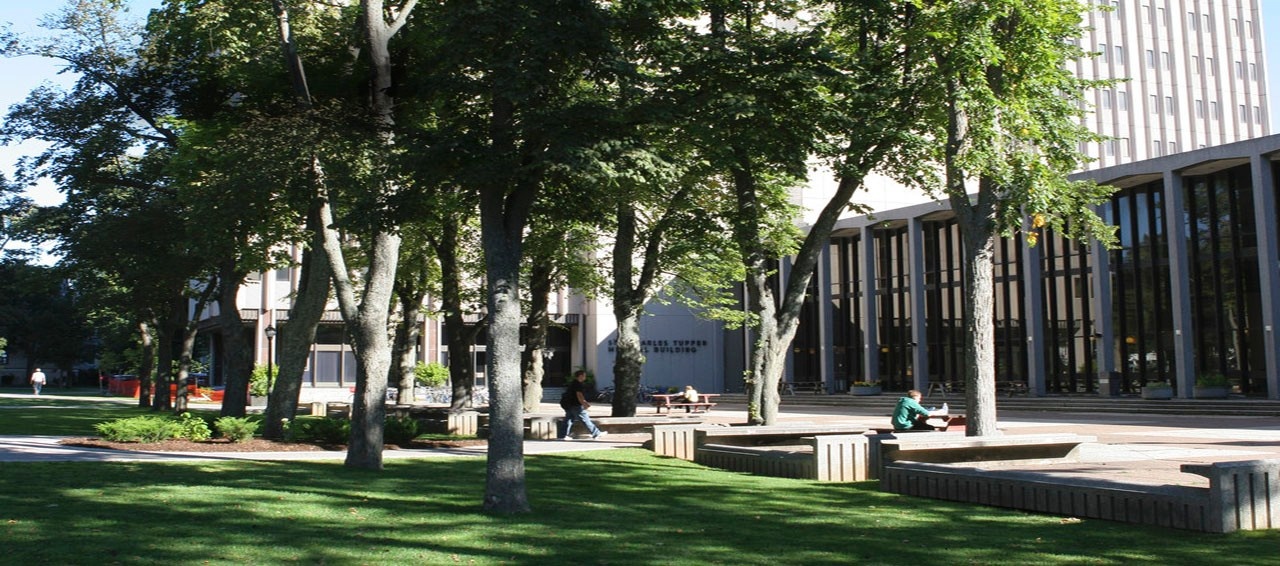Research Funding Programs
- Research Funding Programs
- MRDO Post Doctoral Fellow Awards Program 2026
- MRDO / FoM Capital Equipment Grants
- Conference Grant Awards
- Donald Hill Family Postdoctoral Fellowship Program
- Frank and Debbi Sobey Lectureship Program
- Picchione Visiting Professor Program
- The River Philip Foundation Transformational Medicine Research Grants
- ----------------------------------
- Clinician Investigator Program
- Medical Research Graduate Program
- Undergraduate Summer Research Awards and Summer Student Research Program for Non‑Medical Students
- Graduate Studentships
- Graduate Travel Awards
Research funding programs
Dalhousie Medical School offers an array of research funding via our training and support programs, tailored to the needs of faculty members and trainees – junior to senior, basic science and clinical. The goal of these programs is to provide new and experienced researchers alike with the knowledge, tools, connections and support they require to succeed in their research endeavours.
For faculty:
Research Mentors Program sets new investigators on a course for success
Launching an academic research career is an inspiring, yet sometimes daunting, prospect. Dalhousie Medical School encourages new faculty members to take part in its Research Mentors Program. The Dalhousie Medical Research Development Office matches new faculty members with experienced faculty mentors, who provide information, advice, feedback and encouragement on everything from setting up a new lab and applying for grants, to hiring technical staff and trainees.
For more information about this program, contact MRDO - MRDO@dal.ca.
For trainees:
Research in Medicine introduces medical students to research in first year
Dalhousie Medical School is the first medical school in Canada to introduce research training to undergraduate medical students from the beginning of their first year. Through the Research in Medicine (RIM) program, first-year students learn the basics of how to develop a research question, design a study, gather and analyze data and report their results. By the second half of first year, each student is paired with a mentor who supports them to conduct an original research project over the course of their undergrad training. Learn more about Research in Medicine.
Bachelor of Science in Medical Sciences offers focused undergraduate program
Dalhousie’s new BSc in Medical Sciences is available to qualified high-school graduates with a keen interest in focusing on medical sciences from the outset of their post-secondary training. Jointly offered by the Faculties of Science and Arts & Social Sciences and Dalhousie Medical School, it is only program of its kind in Atlantic Canada. This unique program prepares students for careers in medical research and/or the health professions. Learn more about BSc in Medical Sciences.
Basic science graduate programs train the next generation of medical scientists
Dalhousie Medical School’s basic science departments offer masters and PhD programs – as well as postdoctoral training opportunities – in such disciplines as pharmacology, microbiology, immunology, physiology, biophysics, biochemistry, molecular biology, pathology, community health and epidemiology and medical neurosciences. Faculty supervisors in these programs are leaders in their respective fields and known for giving trainees high levels of autonomy, responsibility and credit for their contributions, while providing ample information, direction and support. Learn more about basic science graduate programs.
Clinician Investigator Program supports residents to pursue graduate research studies
Residents enrolled in a Dalhousie Medical School postgraduate medical education program are eligible to apply to the Clinician Investigator Program (CIP), an accredited training program of the Royal College of Physicians and Surgeons of Canada. Supported by the medical school and clinical departments, CIP provides residents with the opportunity to pursue a graduate degree (MSc or PhD) in a relevant discipline during their residency training – for example, clinical epidemiology or health informatics.
CIP trainees take two or more years off their intensive clinical training while they complete course work, a supervised research project and a thesis. During their CIP training, residents maintain some clinical responsibilities, in order to retain and build their clinical skills. Upon completion of their graduate degree, residents resume their residency training. Learn more about the Clinician Investigator Program.
Medical Research Graduate Program provides research training to residents and medical, dental and veterinarian doctors
The Medical Research Graduate Program provides residents, physicians, dentists and veterinarians with the opportunity to pursue a graduate degree (MSc or PhD) at Dalhousie Medical School. Residents enrolled in the MRGP have the option to enroll concurrently in the Clinician Investigator Program (CIP). The MRGP helps bridge the gap between clinical and fundamental research, by providing the opportunity for clinicians to focus on scientific research. Learn more about the Medical Research Graduate Program.
Summer Research Program for Non-Medical Students
The goal of the Summer Research Program for Non-Medical Students is to increase the number of African and Aboriginal students in medicine by providing them with medical research experience during their undergraduate studies. These students, who are confident that medical research will be part of their professional careers, gain valuable experience in the design, execution and evaluation of experiments. Learn more about the Summer Research Program for Non-Medical Students.
PREP offers practical education for your research career
The Professional & Research Education Program provides essential professional and research learning opportunities to graduate students, residents, postdoctoral fellows, and faculty members at Dalhousie University. PREP is offered through a partnership of Dalhousie’s Faculties of Medicine, Dentistry, Health Professions, and Graduate Studies. Practical education is offered in key areas, such as reserach methods , designs and conduct , career development, library services, knowledge translation, communication and more.
Maritime SPOR Support Unit provides essential research support
Researchers pursuing patient-oriented research now have access to a broad range of support services through the new Maritime SPOR Support Unit (MSSU). Funded through the Canadian Institutes of Health Research’s Strategy for Patient-Oriented Research, the MSSU provides support in such areas as network-building, research methodology, data collection and analysis and more. Learn more about the Maritime SPOR Support Unit.
